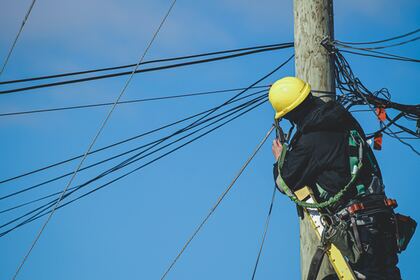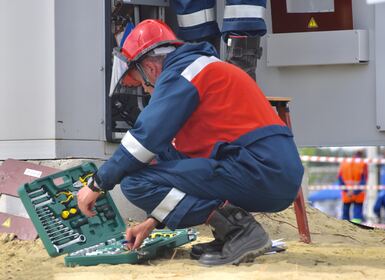
Electrical work is an integral part of maintaining a safe and efficient home or business. Whether you need minor repairs, electrical upgrades, or a complete installation, understanding the cost factors and estimating expenses is crucial for effective budgeting and planning. In this article, we'll delve into the key factors that influence electrical work costs and how to obtain accurate estimates for your electrical projects.
1. **Type of Electrical Work:**
The type of electrical work required significantly impacts the overall cost. Simple tasks like installing an outlet or a light fixture are generally more affordable than complex projects such as rewiring an entire property or upgrading an electrical panel. Additionally, specialized jobs, such as installing home automation systems or EV chargers, may also come with higher price tags due to their technical complexity.
2. **Labor Charges:**
Labor charges constitute a significant portion of electrical work costs. Electricians typically charge based on hourly rates or a flat fee for specific tasks. The level of expertise and experience of the electrician will also affect their labor charges. Complex projects or emergency services may involve higher hourly rates.
3. **Materials and Equipment:**
The cost of materials and equipment required for the electrical work is another significant factor. High-quality electrical components and fixtures may cost more initially, but they often offer better performance and increased safety in the long run. It is essential to strike a balance between cost-effectiveness and the reliability of the materials used.
4. **Permits and Inspections:**
Some electrical projects may require permits from local authorities, which come with associated fees. Additionally, after the work is completed, inspections may be necessary to ensure compliance with safety codes and regulations. These fees should be factored into the overall cost estimate.
5. **Extent of Wiring and Complexity:**
The complexity and length of wiring needed for the project will impact the cost. Extensive wiring for large properties or complex setups will require more materials and labor, making it more expensive compared to smaller, straightforward projects.
6. **Accessibility and Site Conditions:**
The ease of access to the electrical components and the overall site conditions can affect the labor required and, consequently, the cost. If the electrician faces challenges accessing certain areas or if the site conditions are hazardous, additional charges may apply.
7. **Emergency Services:**
In case of electrical emergencies, such as power outages or electrical system failures, emergency services may be required. Emergency electrical work often incurs higher costs due to the immediate response and prioritization needed to address the issue promptly.
8. **Geographic Location:**
The cost of electrical work can vary depending on the geographic location. Areas with a higher cost of living or where skilled electricians are in high demand may have higher overall project costs.
Estimating Electrical Work Costs:
To obtain accurate cost estimates for your electrical projects, follow these essential steps:
1. **Get Multiple Quotes:**
Obtain quotes from at least three reputable electricians. Compare the breakdown of costs in each quote to understand the pricing structure and identify any potential discrepancies.
2. **Detail the Project Scope:**
Provide a clear and comprehensive explanation of the project scope to the electricians. This will help them assess the required labor, materials, and potential challenges.
3. **Ask for a Written Estimate:**
Request a written estimate from the electricians that includes the total cost, labor charges, material expenses, and any additional fees.
4. **Clarify Payment Terms:**
Discuss payment terms, such as upfront deposits or installment options, to ensure a transparent understanding of the payment process.
5. **Check for Licenses and Insurance:**
Verify that the electricians you consider hiring are licensed and insured. This ensures that you're working with qualified professionals who prioritize safety.
6. **Review the Estimate Carefully:**
Before making a decision, review the estimates carefully, and seek clarification on any unclear points. Be cautious of significantly low estimates, as they may indicate subpar workmanship or the use of inferior materials.
7. **Consider Long-Term Value:**
While cost is important, also consider the long-term value of the electrical work. Investing in quality materials and professional services may save you money on future repairs and replacements.
In conclusion, understanding the factors that influence electrical work costs and obtaining accurate estimates are essential for a successful and well-planned project. By working with reputable and experienced electricians and making informed decisions, you can ensure that your electrical projects are completed efficiently, safely, and within your budget. Remember that electrical work is not an area to cut corners, as safety and functionality should always be the top priorities.






Leave Comment Below